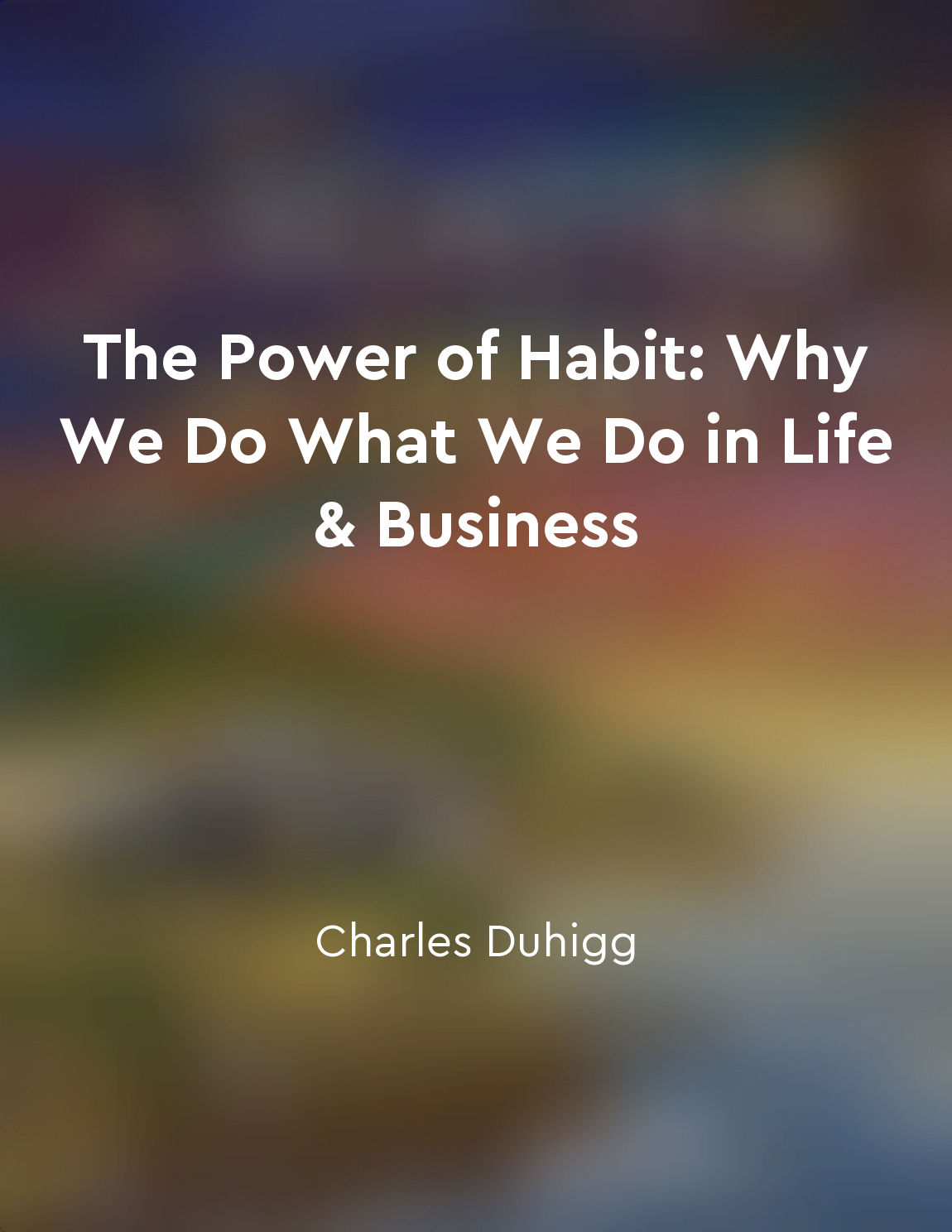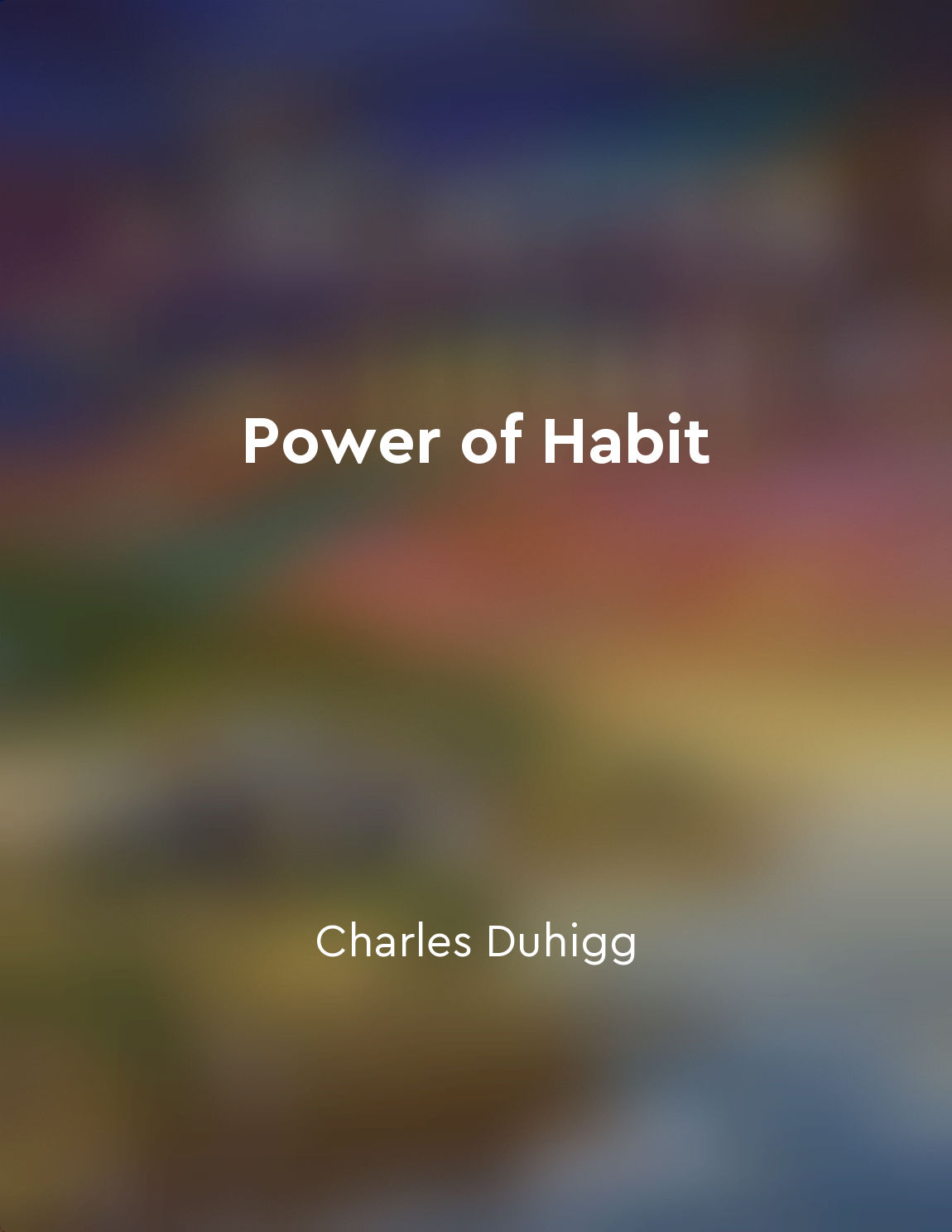Habits consist of cue, routine, and reward from "summary" of Summary of The Power of Habit by Charles Duhigg by Instaread
Habits are made up of three components: cue, routine, and reward. The cue triggers the habit. It could be a certain time of day, a particular place, the presence of certain people, or an emotional state. The routine is the actual behavior that follows the cue. It's the action or series of actions that make up the habit. Finally, the reward is the positive reinforcement that the brain receives after completing the routine. It's what makes the brain want to repeat the behavior the next time it encounters the cue. By understanding and manipulating these three components, individuals can change or create new habits. Cues can be categorized into five types: location, time, emotional state, other people, and immediately preceding action. By identifying the cue that triggers a habit, individuals can begin to understand ...Similar Posts
Effective time management is essential for becoming a selfdisciplined producer
Time management is a critical skill for anyone looking to become a self-disciplined producer. By effectively managing your time...
Be flexible with your habits
When it comes to developing habits, flexibility is a key component that many people overlook. We often think that sticking to a...
Cultivate a mindset of abundance and possibility
When we talk about cultivating a mindset of abundance and possibility, we are essentially speaking about adopting a perspective...
Selfdiscipline
Self-discipline is like a muscle that needs to be exercised regularly to become strong. It is the ability to control oneself an...

Selfawareness is vital for changing habits
In order to change a habit, we must first become aware of it. Self-awareness is the key to transforming our behaviors. When we ...
Beliefs depend on impressions
Beliefs are intimately tied to our impressions. Impressions are the lively perceptions we have of external objects, while belie...
Habit change is a gradual process that requires patience
Changing habits is not an easy task; it’s a gradual process that takes time and patience. When trying to break a habit, it’s es...
We often give in to shortterm desires
It's no secret that when it comes to making choices, our brains often prioritize short-term rewards over long-term goals. We fi...
Embracing setbacks as learning opportunities can foster growth
Setbacks are a natural part of life. When things don't go as planned, it's easy to feel discouraged and frustrated. But what if...

Willpower is essential for habit change
Willpower is essential for habit change because it acts as the fuel that drives us to make positive changes in our behavior. Wh...
